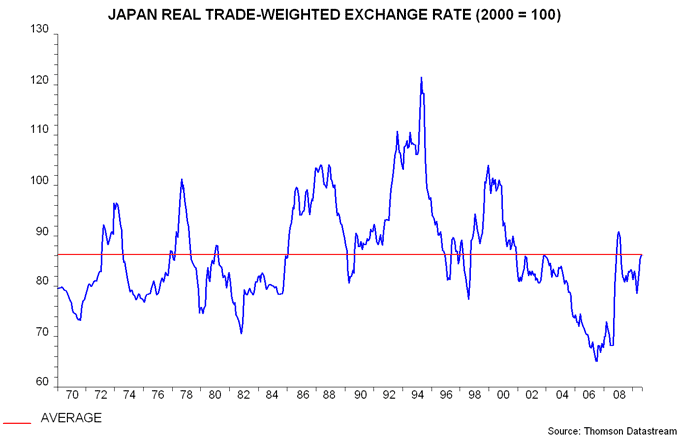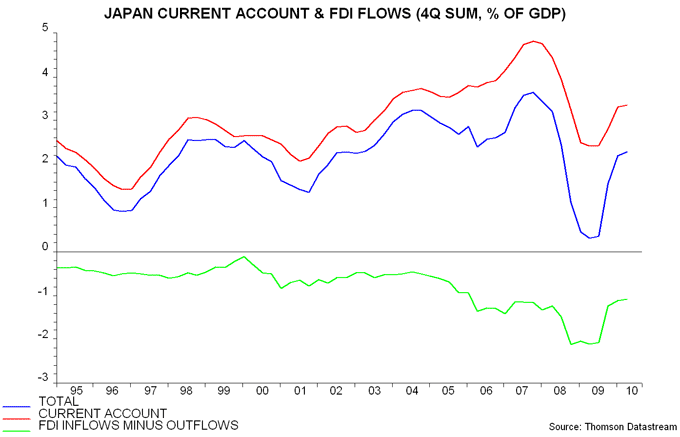Official intervention to weaken a currency is more likely to succeed when the exchange rate is overvalued relative to "fundamentals" and investor sentiment is at a bullish extreme, implying that opposing buyer power has been exhausted. These conditions do not apply to the yen currently, suggesting that massive, unsterilised intervention will be required to stem the currency's rise. A consequent large increase in the Japanese monetary base would improve prospects for global equities.
A possible further rise in the yen was flagged in a post in May, which argued that the currency was undervalued, in contrast to prevailing investor opinion. Subsequent appreciation has, apparently, hardened the consensus belief – a net 72% of fund managers now regard the yen as overvalued, a record high and up from 51% in May, according to Merrill Lynch.
Japan's real effective exchange rate, however, is close to its long-term average – see first chart. Japan's high real interest rates, moreover, justify the currency trading at a premium to a long-run competitive level – the implied future depreciation back to this level would then offset the interest advantage of holding yen. Japanese 10-year real yields are 2.0% versus 0.6% in the US, 1.2% in Germany and zero in the UK (using nominal government yields minus the current rate of harmonised CPI inflation).
Claims of yen overvaluation are also at odds with balance of payments trends, with Japan's surplus on the current account and net direct investment flows rising to 2.3% of GDP in the year to June from 0.3% in the previous 12 months – second chart.
With fundamentals supportive, and little evidence of a major overhang of long positions to be "shaken out", yen suppression is likely to require a prolonged campaign of large-scale, unsterilised intervention. Even this could prove fruitless, as recent Swiss experience shows. The attempt to weaken the yen, moreover, could create conflict with the US authorities, hastening the Federal Reserve's adoption of "QE2".
The "battle of the yen", therefore, could be the trigger for renewed central bank monetary base expansion, adding to the picture of an improving liquidity backdrop for markets and suggesting further strength in equities, commodities and other "risk" assets in late 2010.

